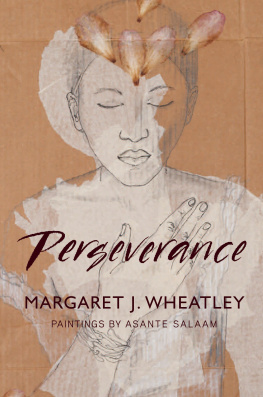MAYHEM IN GREECE
BY DENNIS WHEATLEY
AUTHOR'S NOTE
This story could not be set in any country other than Greece, and that the principal character should be related to the British Ambassador there was essential to it. In consequence, I had to invent Sir Finsterhorn Grenn. I wish it to be clearly understood that this character has no resemblance to any British Ambassador to Greece, past or present, or to any other member of Her Majesty's Foreign Service, and is entirely fictitious. So, too, is Mr. Havelka and all the other characters who, as Czech or Greek officials, play a part in this story.
Portrait of a Hero (?)
Had Robbie Grenn been a normal young man it is reasonable to assume that, instead of sitting in the sunshine outside a restaurant overlooking the blue waters of the Aegean, he would have been doing a job in an office or have become an officer in one of the fighting Services. Moreover, he would not have been able to understand a conversation in Czech he overheard there, which led to pain and grief for a number of people and sudden death for several others.
But Robbie was not quite normal. He was what is termed 'a late developer'; although it was the private opinion of his uncle, Sir Finsterhorn Grenn, the British Ambassador in Athens, with whom he had been living for the past year, that 'poor Robbie's brain will never develop sufficiently for him to be of much use in the world'.
The root of the trouble was that, at the age of six, Robbie and his parents had been victims of an air crash. Both his parents had been killed, and the head injuries he had sustained had at first caused his life to be despaired of. Being a strong, healthy child, he had pulled through, but the set-back had been so serious that he had had to learn to talk, and even walk, again.
His uncle felt very strongly that Robbie might still have caught up had it not been for the two women who took charge of him. They were his elderly, utterly devoted nurse, and his mother's sister, Aunt Emily, who had brought him up at her home in Cheltenham. For several years after the accident, Nanny Fisher had not taken a single day off. She had waited on him hand and foot, refusing to allow him to do the simplest things for himself, from fear that the least strain might prove too much for him. Aunt Emily had, from time to time, urged that Robbie was now well enough to look after himself; but she was a much weaker character than Nanny Fisher, so her protests had been over-ruled.
It had been out of the question to send him to kindergarten, and even when he had entered his teens the two women shrank from sending him to school. He was a most lovable little boy, but mentally far behind his age, and his movements were still ill-coordinated; so they could not bear the thought of him becoming the butt of other children. First governesses and then tutors had been engaged to educate him privately but, apart from teaching him to read, write and do simple sums, they found great difficulty in instilling much knowledge into him. This was not altogether because his brain was slow, but because years of coddling by Nanny Fisher had ingrained in him a chronic laziness. He could not be made to concentrate upon his lessons.
On the other hand, he could concentrate perfectly well when it called for no effort on his own part. He loved being read to, particularly fairy stories and, later, romantic legends such as those about the Knights of the Round Table, the great French champion Bayard, and the mythical heroes of ancient Greece. He loved music alsoalthough only the popular kind, for he had never been introduced to any otherbut he would sit for hours playing his gramophone, and needed to hear a tune only once to be able to hum it.
It was from the latter gift that there arose the only accomplishment he possessed. One day, when he was buying records, he included among his purchases, owing to the fascination that chivalry had for him, one in French, because it was a selection from the Lays of the Troubadours. No doubt his ear for music explained the speed with which he picked up the phrases. Two days later, to Aunt Emily's astonishment, she came upon him singing the songs from memory, with an impeccable accent.
That night, on her knees beside her bed, she gave fervent thanks to God for having solved a problem that had long worried her in secret. Robbie was an only child, and had inherited from his father a quite considerable sum which, on being handed over by his trustees when he was twenty-one, would provide him with a very adequate income. But Aunt Emily was one of those spinster ladies for whom the spread of Socialist ideas held a constant nagging menace. As a kindly and charitable soul, she was glad to see poorer people benefit from the Welfare State. But it was she and her kind who were paying for it. The nationalisation of the railways had robbed her of an appreciable part of her own income, and such horrible bogies as Local Government Compulsory Purchase Orders, further Rent Restriction Acts and the possibility of a Capital Levy caused her sleepless nights at times.
Such matters for dread might not be just round the corner, but she felt there was good cause to fear that, sooner or later, another Socialist Government might well bring in measures which would deprive her poor, helpless Robbie of most of his money. However, a man who could speak several languages could always make a living. Next day she bought him a set of English-French phrase records, and persuaded him to start learning French. He took to it like a duck to water.
Robbie was then seventeen and he was delighted with his new achievement. More records were bought and he became so intrigued that he agreed to have language tutors. Within a year he could talk French and German fluently. But Aunt Emily was not content with that. She held the optimistic belief that before many years had passed the West and the East would settle their differences and the Iron Curtain be lifted. Then trade with the countries behind it would increase enormously. Few English people had even a smattering of their languages, so a man who could speak them well would be assured of a highly-paid job.
Being by no means a fool, Robbie willingly accepted his aunt's idea. He still stubbornly refused to study mathematics, grammar, geography and other subjects he found dull, but devoted several hours a day to learning languages, and later reading books in them. By the time he was twenty-one, he had mastered Polish, Czech and Hungarian, and was doing well in Spanish and Italian. Moreover, although his general education remained extremely sketchy, he had subconsciously absorbed, from the books he read, a considerable amount of knowledge about European countries, their literature, music and art.
Soon after he came of age Aunt Emily fell ill and, seven months later, to his terrible distress, died of cancer. His only close remaining relative was his father's brother, Sir Finsterhorn Grenn, who had just been appointed British Ambassador to Athens. For some weeks after his aunt's death Robbie had been completely broken up; so, on the assumption that he was still incapable of looking after himself, Sir Finsterhorn had, a shade reluctantly, mooted the idea that Robbie should accompany him and his wife to Greece.
Lady Grenn had also, at first, been far from enthusiastic about this idea, as she feared that to have a young man who was not quite normal as a permanent guest at the Embassy would prove a constant embarrassment. But Robbie had seized so eagerly on the tentative suggestion that they had felt compelled to make it a definite invitation and, after he had spent a few days in their company, Lady Grenn had found her fears groundless.
He was very shy and a little awkward in his movements, appearing even more so on account of his size; for the underdevelopment of his brain seemed to have been compensated for by physical growth. He was well over six feet tall, strong-limbed and enormously broad-shouldered. From under Aunt Emily's protective wing he had seen so little of the world that at first he found it difficult to talk to strangers, but once drawn out he could be interesting and infectiously enthusiastic about his own subjects. He had, too, one asset that more than compensated for his simple mind: he radiated honesty, kindness and willingness to do anything within his limited powers to help others. In consequence, Lady Grenn soon grew very fond of him, and he of her, although she could never, for him, take the place of his beloved Aunt Emily.
Next page





